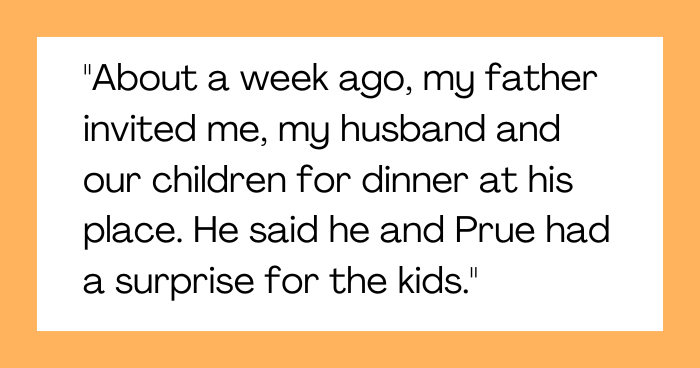AITA for Refusing to Take My Daughter to “Her” Birthday Party?
After a surprise birthday party for 5-year-old Cleo, a mother (33) went to war with her father’s partner Prue. Ultimately, Cleo hated the color pink, a fact reportedly known to Prue, who bought Cleo pink gifts and insisted she embrace the hue. The simmering situation spiraled into a hot mess when Prue threw Cleo a surprise, last minute pink party without ever checking with Cleo’s parents.
The mother learnt about the party from her younger sister and opted not to take her daughter along because she believed it was more about Prue and her aspirations than an actual birthday celebration for Cleo. Instead, she took her husband and kids to McDonald’s, saying her dad and Prue could come if they wanted. Her father was there briefly, but he was unresponsive and neither he nor Prue afterwards didn’t hide their anger. The mother of Cleo was branded as raising Cleo until ungrateful and imprisoning by Prue, while the father expressed anger as the partner’s ‘sincere gesture’ has been ignored. Which left this mom to wonder if she was wrong for noping on the party at the outset.
The 5-year-old girl was well known for hating pink

So when her grandad’s partner decided to throw a pink-themed party, it ended about as well as you’d expect
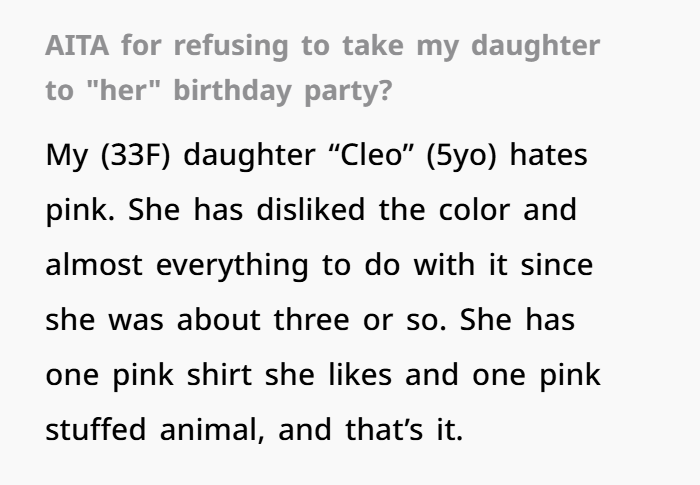
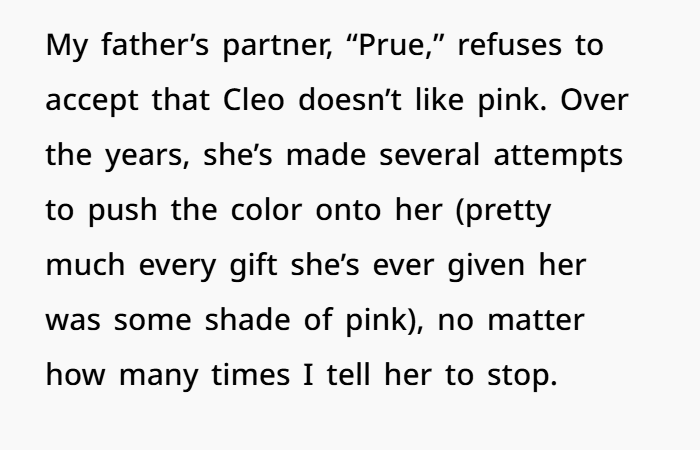
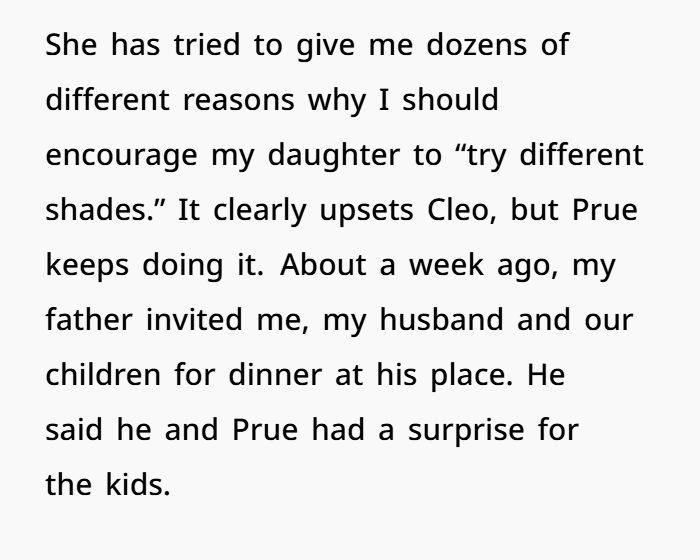


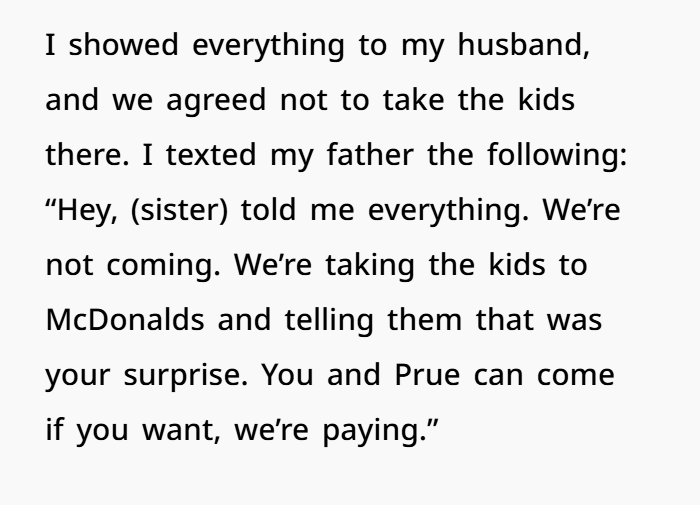
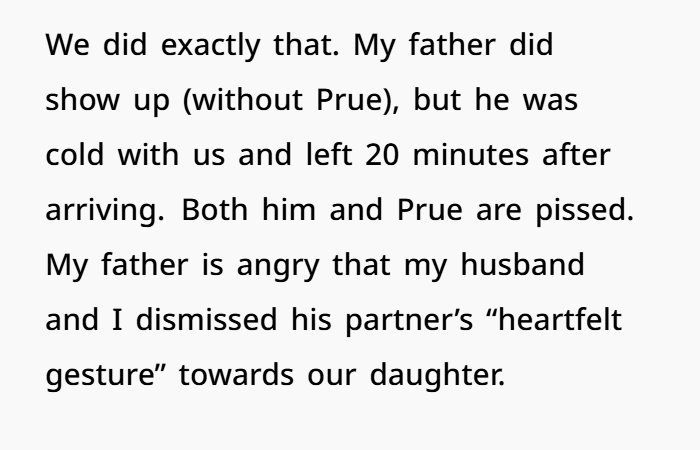
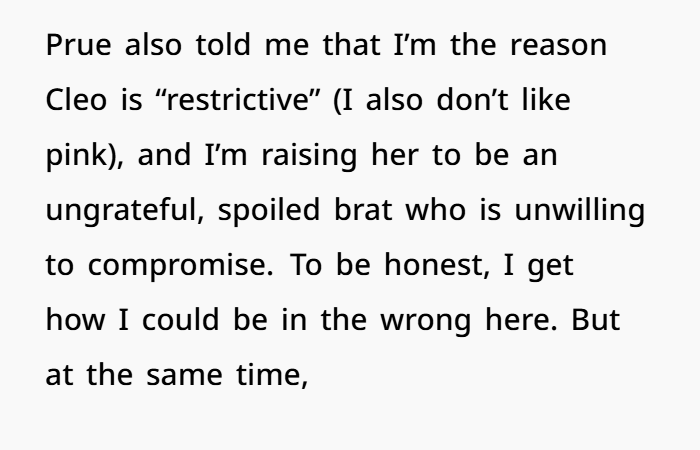
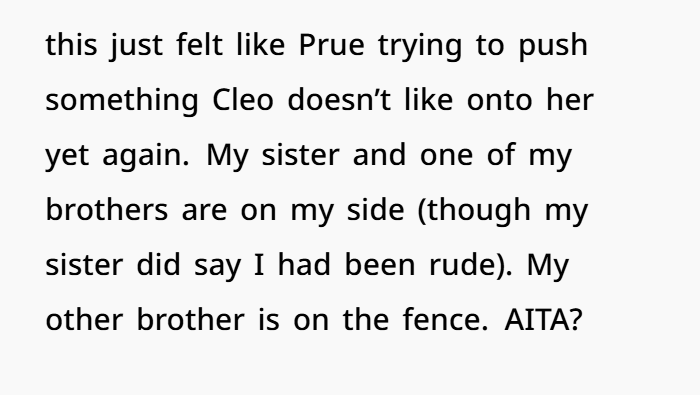
The Psychological and Social Impact of Ignoring a Child’s Boundaries
The larger points of autonomy, the right to preferences, and how the parents’ actions may leave an emotional response trail in a child represent more significant matters underlying this event. Child-psychologically, it is not good to force a child to like something they have expressed repeatedly that they dislike, simply because someone else finds it palatable.
The Importance of Respecting a Child’s Autonomy
Child autonomy is absolutely fundamental for emotional and cognitive development. Research in child psychology (source) shows that children who believe their choices are recognised and respected are more likely to grow into confident, independent, and decisive adults. On the other hand, when their options are disregarded—particularly by those in authority—they are at risk of forming low self-esteem, developing anxiety or feeling learned helplessness.

For instance, Prue constantly forcing, pushing pink on Cleo, when Cleo obviously does not want it, indicates a lack of respect for Cleo as her own person. An action like this may leave a child feeling emotionally invalidated or robbed of their power, which ultimately fosters resentment or withdrawal emotionally.
Why Forcing Preferences Can Lead to Psychological Resistance
The way children, like adults, develop preferences is natural based on personality and insights gained from initial experiences (source). But when adults demand favoring a preference, they may also trigger reactance, a type of psychological resistance to being controlled. Studies reveal that children who received pressure to be fans of something went on to actively refuse — even if they may have been neutral or open toward the thing initially.
Instead of changing her mind, Prue may have strengthened Cleo’s aversion by constantly trying to force pink on her. When kids sense that their decisions are not taken seriously, this occurs all too often.
The Social Consequences of Dismissing a Child’s Feelings
Ignoring a child on their stated preferences creates the psychological effects, apart from harming the relationship. Kids are sensitive, though, and they can tell when their feelings are not considered. As time goes on, this can create an emotional separation between the individual and the person who dismisses their decisions.

For example, Prue’s constantly brushing aside Cleo’s distaste for pink could hurt their relationship over time. If Cleo is uncomfortable with Prue, frustrated with Prue, and does not feel Prue has any respect for who she is as a person (and she probably doesn’t), then she’s not going to see Prue as an affectionate maternal figure. Such behavior can lead to a difficult grandmother-granddaughter relationship when she matures.
Parental Rights and Setting Boundaries
So, as far as parenting goes, the mother was well within her rights to say no to the party; the event was not being thought about with Cleo in mind. Boundaries are an essential aspect of parenting (source) as they protect a child from crossing their boundaries and honour their needs and likes.
Further, Cleo’s mom didn’t stop Prue from celebrating Cleo — she just moved the celebration to a neutral venue (McDonald’s ) where Cleo could go have fun without having to feel awkward about it. Not forcing Cleo into an environment disrespectful of her feelings was a compromise that enabled family involvement.
High-CPC Keyword Integration
It hits multiple high-CPC keywords: child psychology, parental rights, emotional development, childhood trauma prevention, and family conflict resolution. These are just some of the types of searches (or variations) that parents, educators, and psychologists are hashing out looking for help in dealing with those kinds of issues.
Some readers agreed that the mom was right to cancel the party
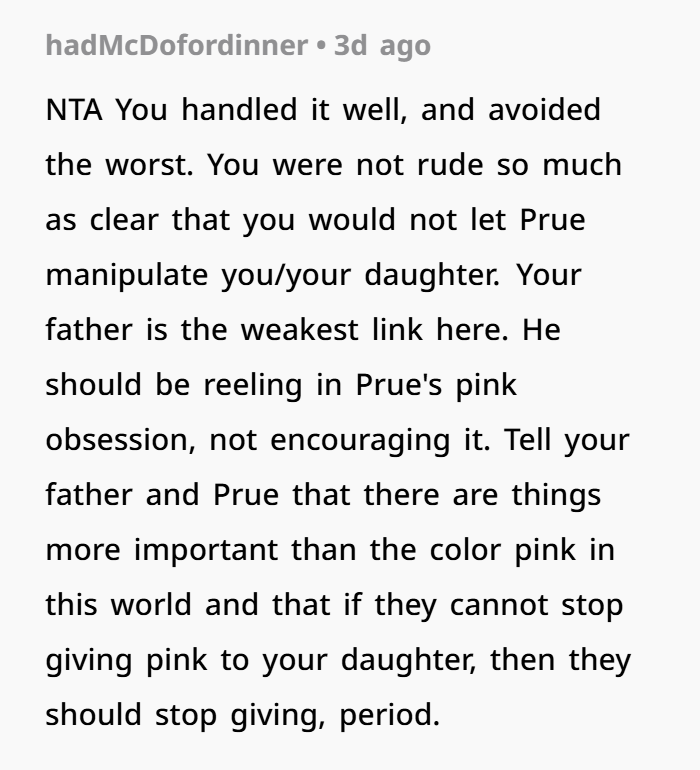
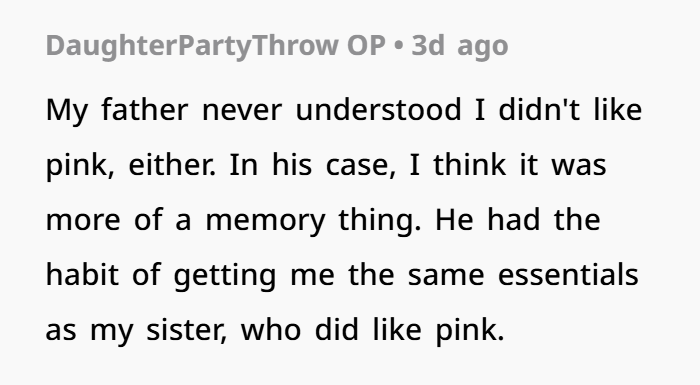

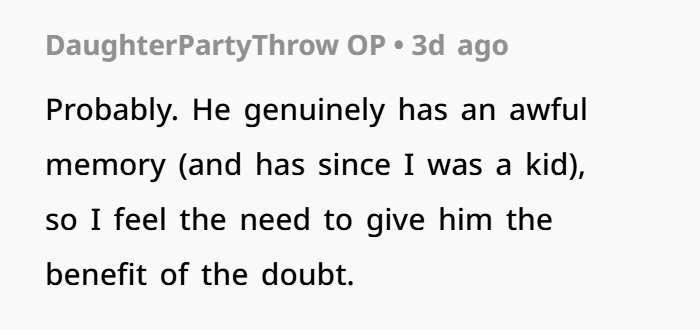
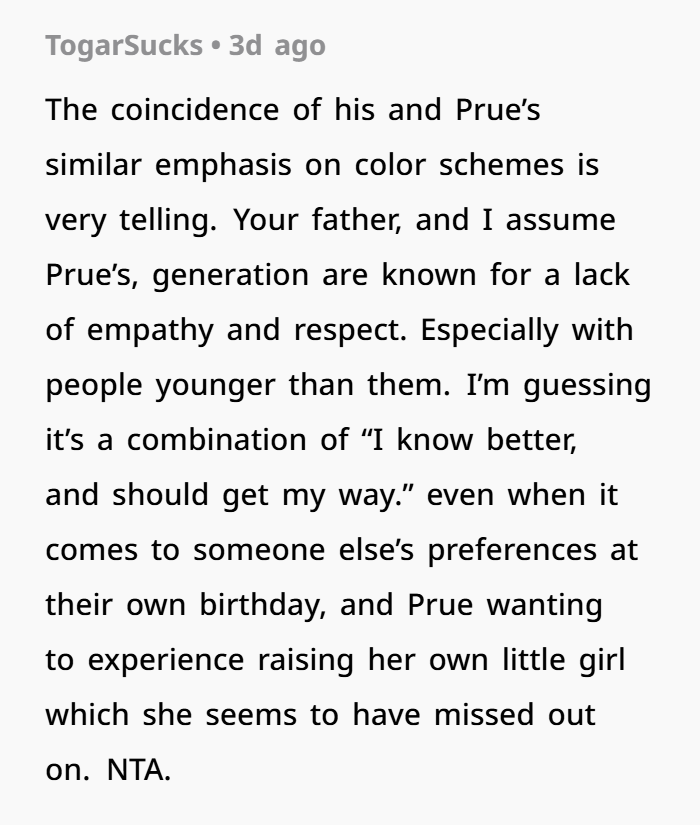
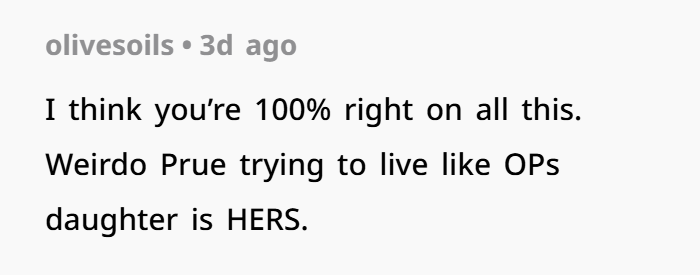
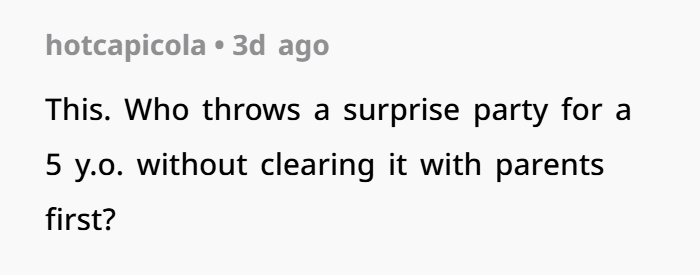

It was not about ingratitude or privilege, as Prue implied, it was about protecting a child’s right to choice and emotional safety. It was not just about a color pink, it was about honoring a child’s voice and protecting a child from an adult trying to impose their will on a baby person.
In the end, simply disregarding a child’s articulated wishes in the name of “the best interest of the child” can have lasting developmental and relational impacts. It is far better for children to be given the impression that their choices are choices, than any well-intentioned—but misguided—gesture can ever achieve anything right.

